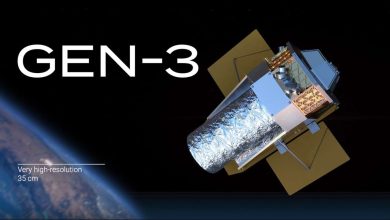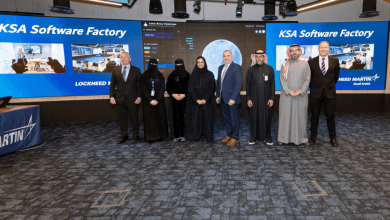
Raytheon Intelligence & Space Unveils First Steps of Global ASNT Operational Readiness
Raytheon Intelligence & Space, a branch of Raytheon Technologies, has recently provided the Initial Operating Capability for the Global Aircrew Strategic Network Terminal system, abbreviated as Global ASNT, to the U.S. Air Force.
Global ASNT guarantees strong communications for nuclear bomber, missile, and support aircraft crews in challenging environments. The Global ASNT functionality will be pivotal in fostering joint connectivity within a fiercely contested battlespace, aligning with the U.S. Department of Defense’s strategy for Nuclear Command, Control, and Communications, known as NC3, and Joint All Domain Command and Control, or JADC2.
“Guaranteeing that these essential protected communication capabilities bolster NC3 and the enduring JADC2 initiatives is fundamental to our national security,” stated Denis Donohue, president of Surveillance and Network Systems at RI&S. “Our commitments to the NC3 initiative are yielding tangible benefits for the troops and Global Strike Command. We’ve successfully delivered and set up more than the requisite four systems for IOC and have offered training to assist the customer’s IOC determination.”
The sturdy communications functionality provided by Global ASNT will empower the U.S. Air Force to execute joint warfare by safely exchanging data in highly contested scenarios. JADC2 is the DOD’s aspiration for an advanced command-and-control framework that will interlink the battlespace across all domains – maritime, aerial, terrestrial, extraterrestrial, cyber, and the electromagnetic spectrum. RI&S is contributing its extensive multi-domain expertise in space systems, resilient communications, sensors, AI/ML, and mission software to facilitate DOD’s JADC2 structure.
RI&S has dedicated millions to infrastructure and capabilities to bolster the NC3 mission through Global ASNT by:
- Constructing, testing, delivering, and installing both fixed and modular Global ASNT terminals and spare parts.
- Training over 100 individuals, encompassing operators and maintainers.
- Creating a Contractor’s Inventory Control Point (C-ICP) to centrally oversee depot operations during the Interim Contractor Support (ICS) phase.
- Offering help desk assistance to fielded and deployed operators and maintainers.
- Continuing to provide and install terminals and conducting training sessions weekly.
- Establishing secure labs and educational environments.
The primary operational sites for this initiative are located in Florida and Massachusetts, with significant suppliers in California, Pennsylvania, and Texas. The remaining nearly 250 suppliers supporting the program are distributed across the United States.









